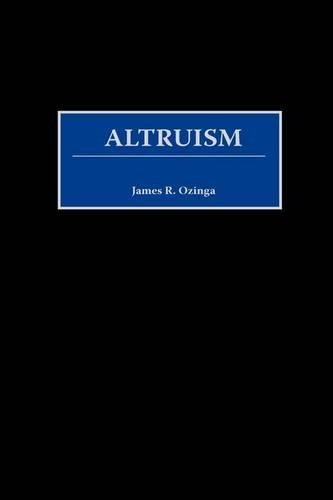
Altruism
(Hardback)
Publishing Details
Altruism
By (Author) James Ozinga
Bloomsbury Publishing PLC
Praeger Publishers Inc
30th December 1999
United States
Classifications
Tertiary Education
Non Fiction
Ethics and moral philosophy
Political science and theory
Cognition and cognitive psychology
Social, group or collective psychology
171.8
Physical Properties
Hardback
192
Description
Altruism, understood as doing something for someone else at some cost to oneself, is contrasted with selfishness. Ozinga argues convincingly that altruism is a natural part of human nature that it is not just found in a few rare people that it has evolutionary value and is exhibited in some manner by everyone. Nonetheless, most people seem to feel that selfishness rules human behavior. Altruism is considered an environmental addition to the human character, often seen as naivet. Ozinga attacks this view by examining the probable source of altruismin the genes, in the concept of natural law, or in the instinct for social behavior. Various barriers to altruism are explored in the chemistry of a person, in terms of organized religions or ideologies, and in the goals people choose. Altruism, as Ozinga shows, is a multi-dimensional concept that can be understood and appreciated as a vital part of human nature.
Reviews
Recommended for all readership levels.-Choice
Recommended for all readership levels.Choice
"Recommended for all readership levels."-Choice
Author Bio
JAMES R. OZINGA is Professor of Political Science at Oakland University./e He has written six books dealing with political philosophy and East-Central European government and politics.
